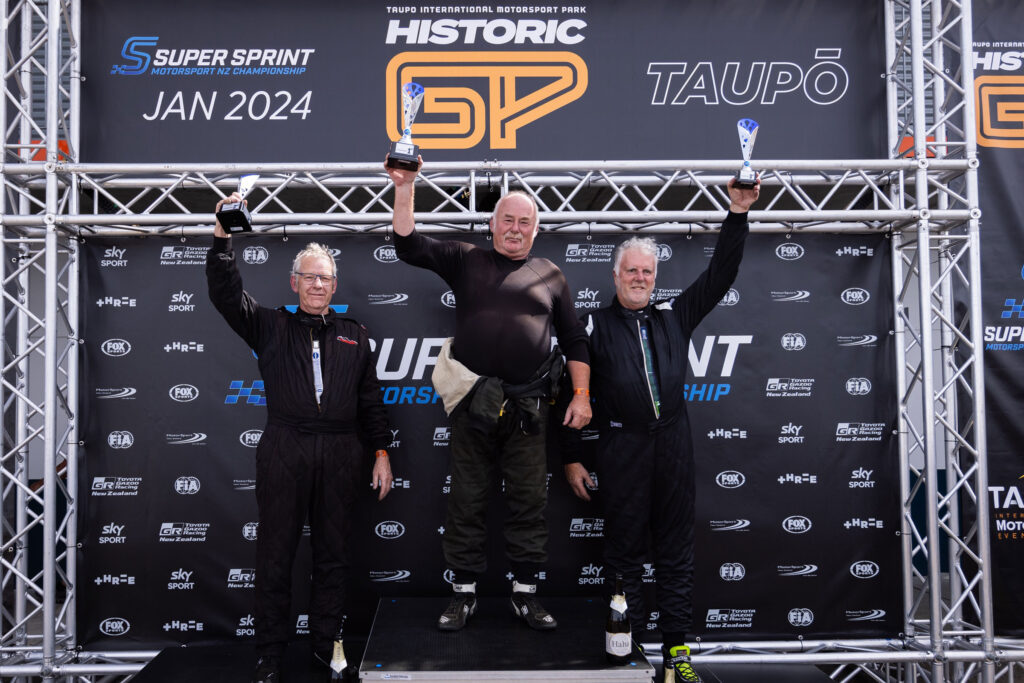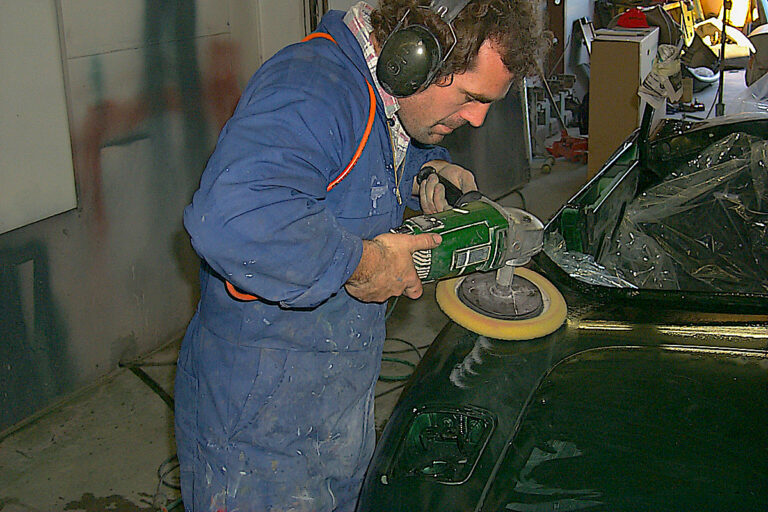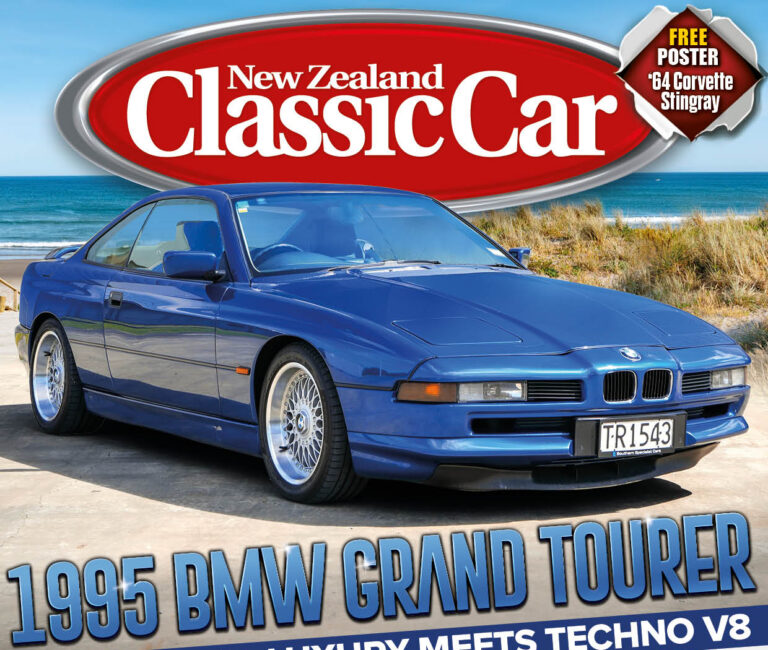50 years of racing
With this issue 392, we celebrate 60 years of the Ford Mustang.
We commence with a rare Paul Fahey replica Shelby Mustang owned by another kiwi who we should celebrate, Rodger Cunninghame.
Roger has been strutting his stuff with race cars for 50 years now and it seemed appropriate to celebrate both the milestones in this edition even though Roger is retiring from racing now, the Ford Mustang lives on.
Roger is also a longtime member of The Southland Sports Car Club (SSCC) which is also celebrating a big anniversary, its 75th. It sure is celebration time!
Quinton Taylor writes “In 1956, Rodger joined his father Bruce and his mate, club president Des Kilkelly, helping with building new grandstands at Teretonga and the start of a long association with the club.
“I was just a wee kid working with Dad on that. They had been shifted here from some other local sports club and bought here, and they had to put all the seating back on them.”
Rodger always had a liking for making things go faster and it didn’t take him long to tinker with cars as we looked through a couple of very comprehensive scrapbooks recording many amusing moments on and off the racetrack.”
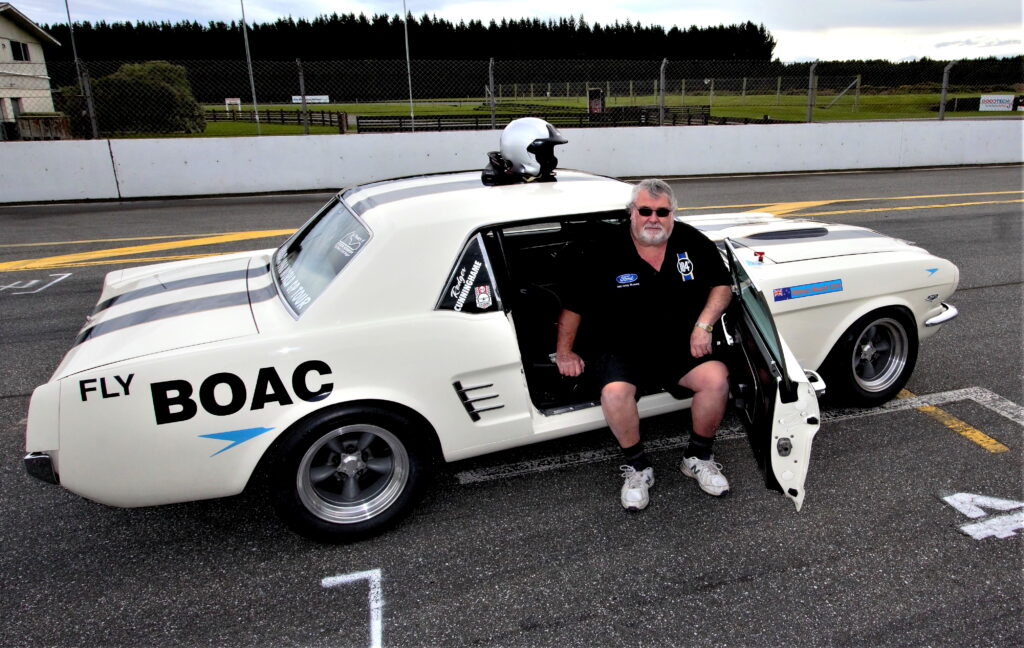
American as apple pie
Continuing on with the Ford Mustang’s 60th anniversary, we dive into the history books and our archives and tell you all there is to know about this most classic of 60s cars. One of our team has a ‘65 convertible in his private collection and we crawl all over that along with telling the tale of the Mustang’s creation in 1964.
Vaughn Wilson writes “Three days prior to launch day on 14 April 1964, the George G R Parsons Ford Dealership in St. Johns, Newfoundland had a pre-production vehicle on display ahead of the official launch. The car was Wimbledon White with black interior, had misaligned panels and a few small parts missing and was not supposedly for sale. Salesman Harry Phillips (still alive as of 2019) was talking to potential customer, airline pilot Captain Stanley Tucker, who saw the Mustang and told Harry, “it’s mine”. Harry sold him the car on the condition it had to stay in the showroom for a few weeks as part of the launch. Unbeknown to everyone concerned, the serial number of this car was 5F08F100001.Tucker took his car home and proceeded to put 10,000 miles on it over the next two years.”
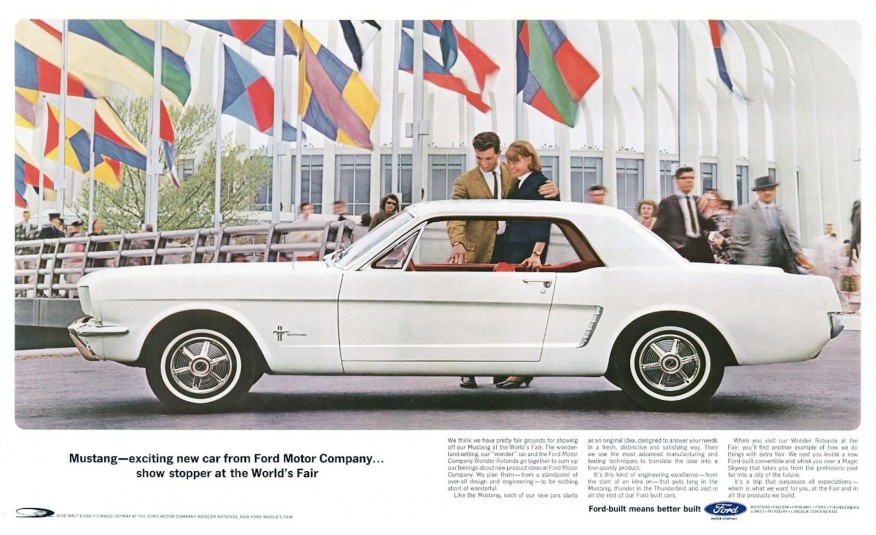
The Erich Zakowski legacy – Zakspeed
We were fortunate enough to have a couple of extremely rare and valuable Zakspeed race cars in NZ, a 1979 Capri and a 1975 Escort. The Capri was sold overseas last year but the Escort is still resident here and is also for sale. Aaron Mai caught up with both these cars late last year and in this article, give us the background and history of the very talented Polish born Erich Zakowski and the motorsport business he created in the late 60s.
Aaron writes ”In the cut-throat game of one-upmanship Zakspeed was the one team you could always count on to find a keener edge at the murky boundaries of motorsport rulebooks. The Erich Zakowski legacy is a true rags to riches story that saw a Polish refugee set the motorsport world on fire, crafting some of Europe’s angriest and most iconic race machinery, in an era of limitless boundaries and white-hot competition.”
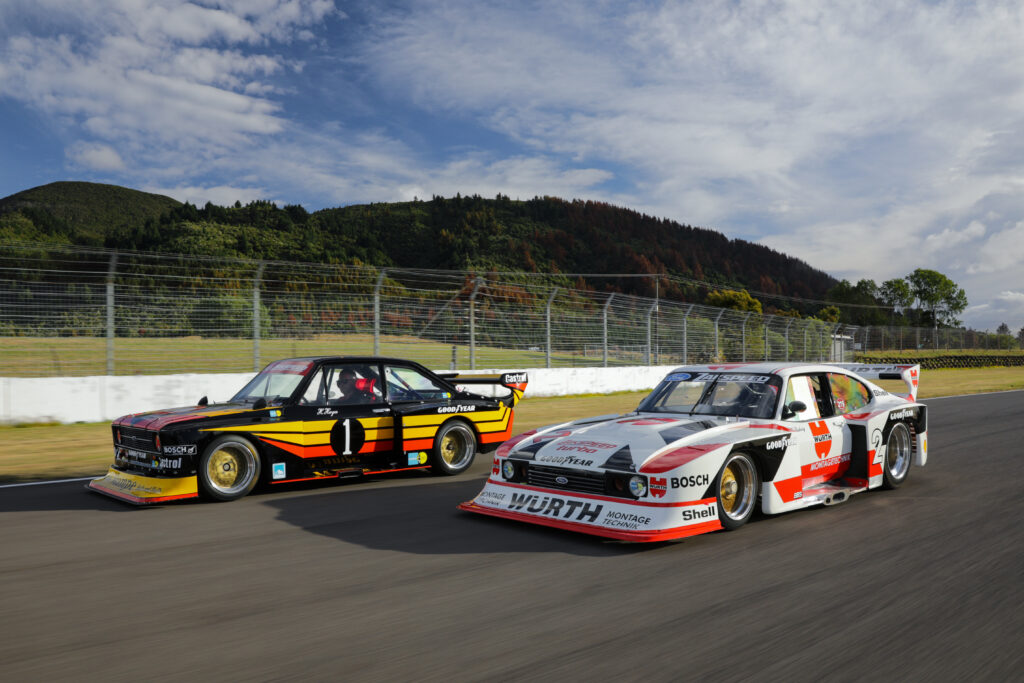
Bavarian express
One of the most desirable of all the classic BMWs is the 635 CSi. The 635CSi coupé has become an icon of the ’80s. It was regularly driven by Cybil Shepherd and Bruce Willis in the TV series Moonlighting. Patrick Harlow can still recall the day he saw his first CSi and was seduced once again when he came across this pristine example which he first admired some 30 years ago in Porirua.
Patrick writes, “To this day, I can still remember the first time I saw one of these cars. At the time I was living in Lower Hutt and the house next door was a rental which saw many tenants coming and going over the years. In the early ’90s, a family moved in, and the father owned a 635CSi. He was a travelling salesman. The 635CSi was his daily driver and work car. Almost every weekend he would wash and polish it so I had plenty of opportunities to talk to him.”
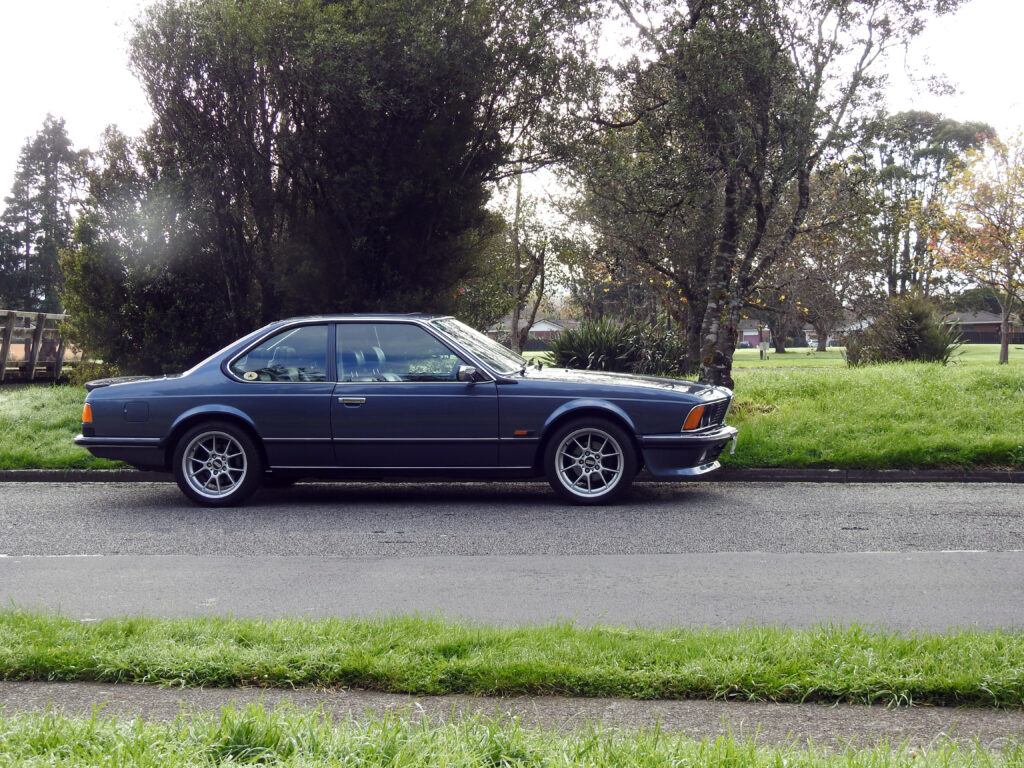
Auto Haven Glitter
A great classic car museum is always something to celebrate and share the good news about its exhibits and location. We visit Auto Haven in Bromley, Christchurch, and are blown away by the cars and atmosphere of the American Graffiti-inspired museum.
Quinton Taylor writes “You enter a world of American Graffiti and rock’n’roll when you step through the doors of the colourful ’60s diner at the Autohaven museum. It’s a slice of nostalgia created by Trevor Bills and his team in the middle of an industrial complex at Bromley, in Christchurch, but it’s just a tiny slice, a sideshow, for the automotive goodness on offer.”
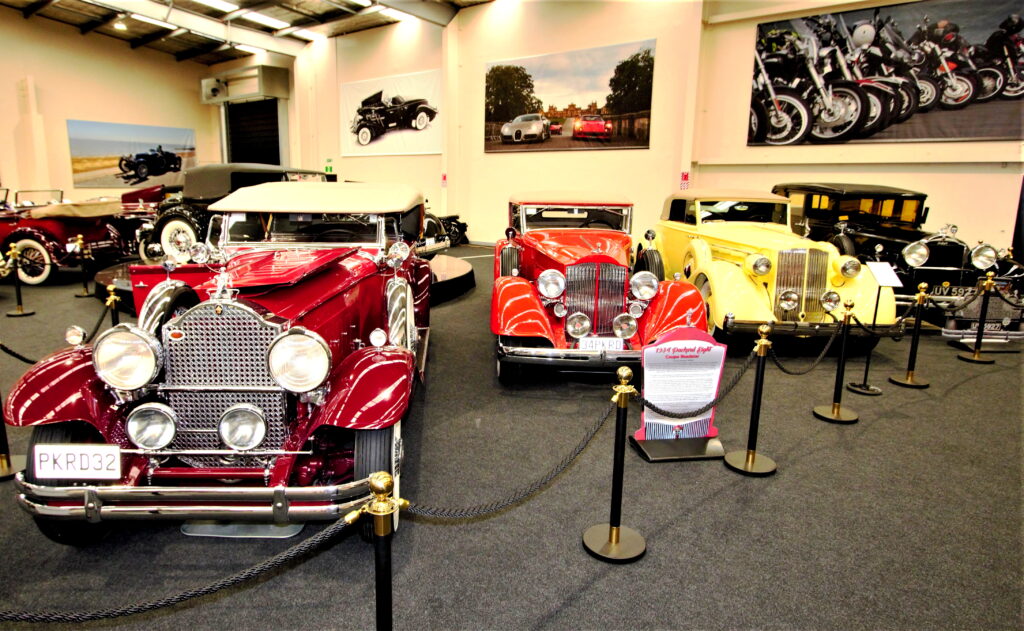
Just the thing for cruising
Upper Hutt couple Kirsti and Dean Somerville enjoyed a smooth ride in their friend Danny Nelson’s 1956 Ford Fairlane Victoria coupé, which inspired them to look for a ’56 Ford wagon with four doors. Dean and Kirsti regularly display cars at classic car days around the country and co-organise the annual Moonshine American Vehicle Day at Trentham racecourse.
They came across this 1956 Ford Fairlane Country Sedan and decided it had to become one of the family.
Christopher Moore writes “Kirsti is the third registered New Zealand owner. She and Dean bought the station wagon from Hadleigh Oudemans, a highly regarded classic vehicle restorer who had owned the car since 2011. He used the eight-passenger vehicle for the first five years in his ownership as his family’s only car. As the car was in good original condition, Hadley didn’t carry out a restoration, simply arranging an engine reconditioning by Trevor Parmenter and some minor adjustments before it was “complied and rollin’” in Hadley’s words.”
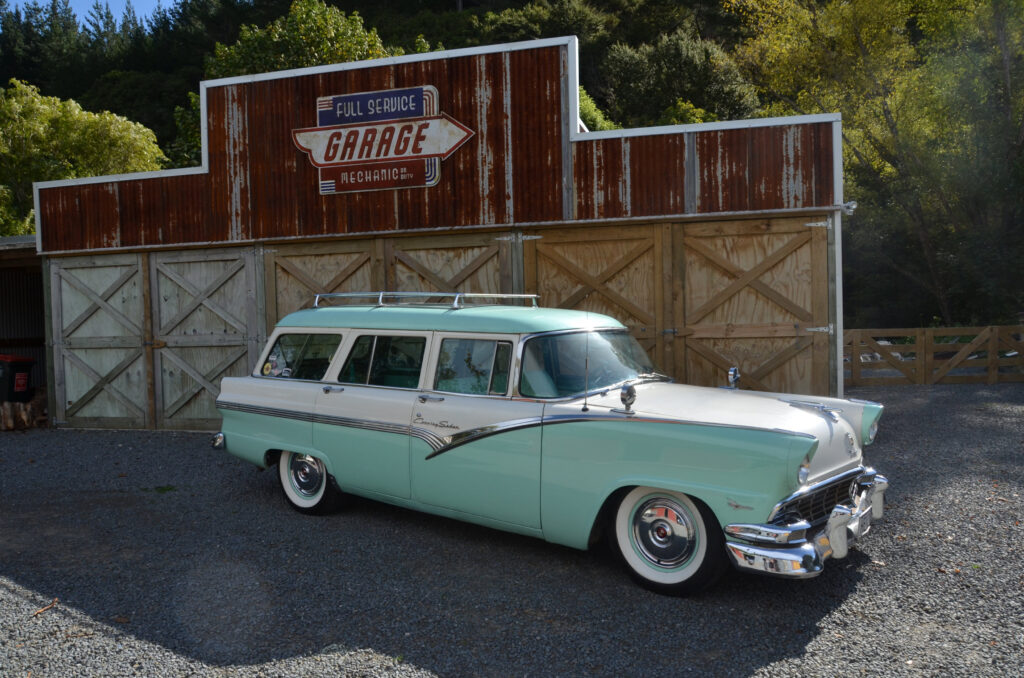
Divco delivery truck
We discovered this unusual delivery vehicle on our travels in the USA. It’s a 1968 Divco delivery truck that owner Bill Weller uses for his brewing business. There is quite a history to tell on Divco and Bill. Divco was an early electric vehicle manufacturer but in 1922 thought they might try using gasoline engines for their vehicles. And Bill, well he’s a farmer that thought he would try his hand at brewing beer
Vaughn Wilson writes, “George Bacon was the chief engineer of an electric vehicle company. He suggested one day to his superiors that the company might consider using gasoline engines in their delivery vehicles to overcome limits on their vehicles’ range, top speed and performance in cold weather. It’s an old argument. This was the Detroit Electric Vehicle Company (DEVC) and the year was 1922. DEVC started life in 1884 producing carriages and buggies. It moved into electric vehicle production from 1907,using a rechargeable lead-acid battery.
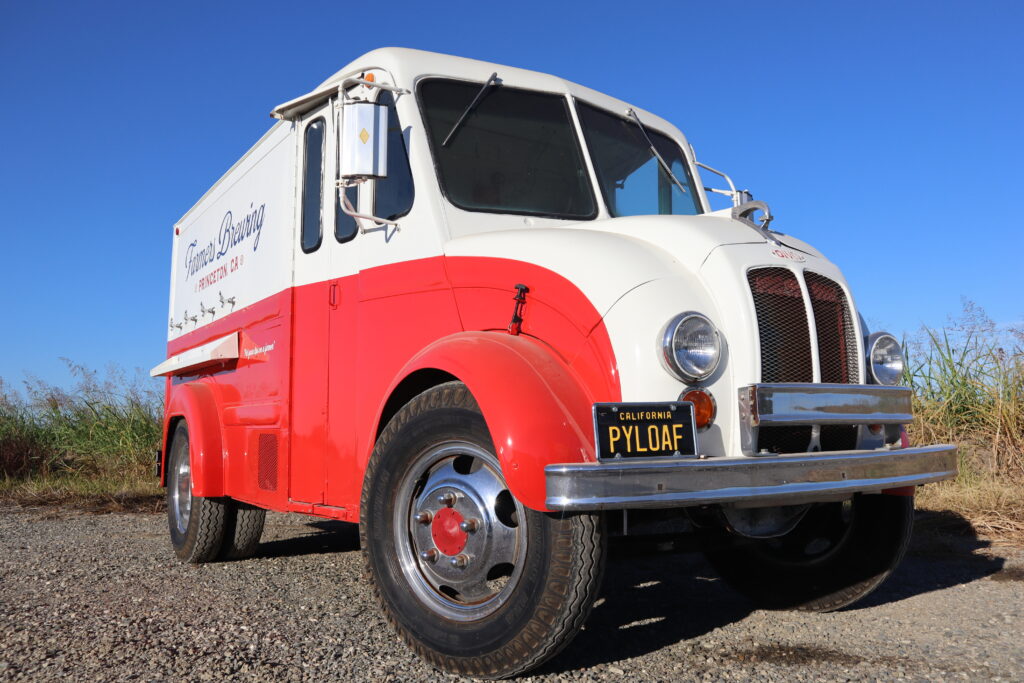
Highway woman
Gladys Goodall was a pioneer New Zealander at a time when most people thought the pioneering had all been done. Spending a life on the road, she left an indelible impression on the way many people around the world see New Zealand
Rolling into another New Zealand backblocks small town in the mid-’60s, a solo woman driver emerges from her nearly new Mk 3 Zephyr. She’s highway weary, having been on the road for several weeks. Lining up the night’s hotel or motel accommodation is a priority.
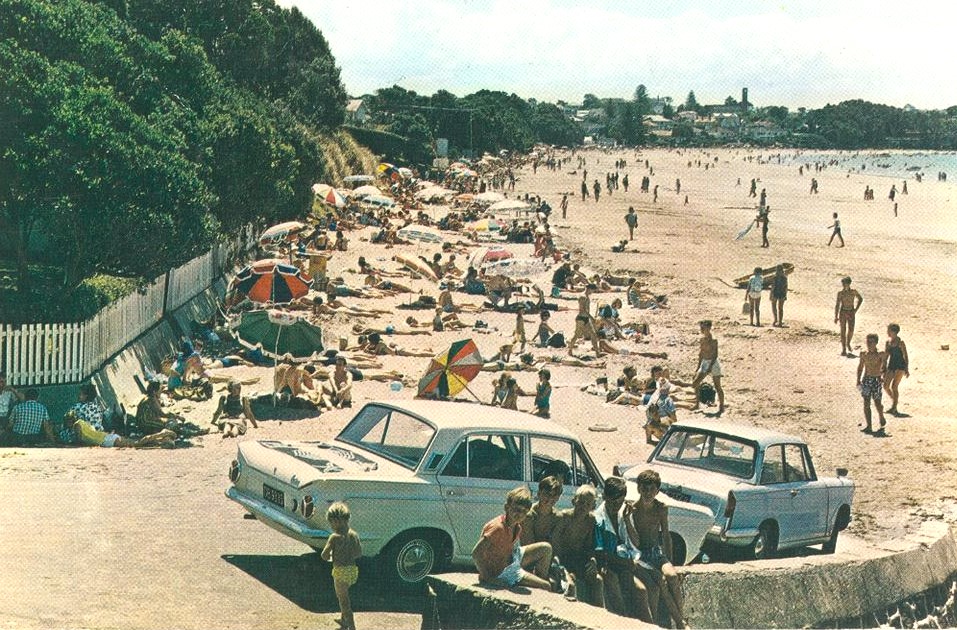
Working with the chain gang – 1934 Frazer Nash TT Replica
A desire to race is why Jonathan Paape’s father, Godfrey Paape, imported a Frazer Nash from England in 1937.
Frazer Nash was the car to beat in hill climbs, alpine tours and anything twisty. The formula was simple and some engineers understood this way before Colin Chapman extolled the mantra of “adding lightness”. One of the aces that Frazer Nash added in weight saving was avoiding the need for power sapping gearboxes or differentials. Their cars were chain driven, with a simple solid back axle.
Jonathan writes, “ In 1962, when I was about 10, and about 25 years after my father had sold the car Dunedin enthusiast Tony Carroll rescued the car from a Wellington owner, and embarked upon the convoluted restoration of the car. It was now knackered, and fitted with a Ford Zephyr engine. The original engine went into a power boat, blew up and was thrown away. It had oddball brakes and a mucked about drive chain.
For the next seven years or so, my father and I would go and have a look at progress a couple of times a year. My father was still enthusiastic about the car and loved the project, and I was swept along, absorbing his love of this motoring icon.”
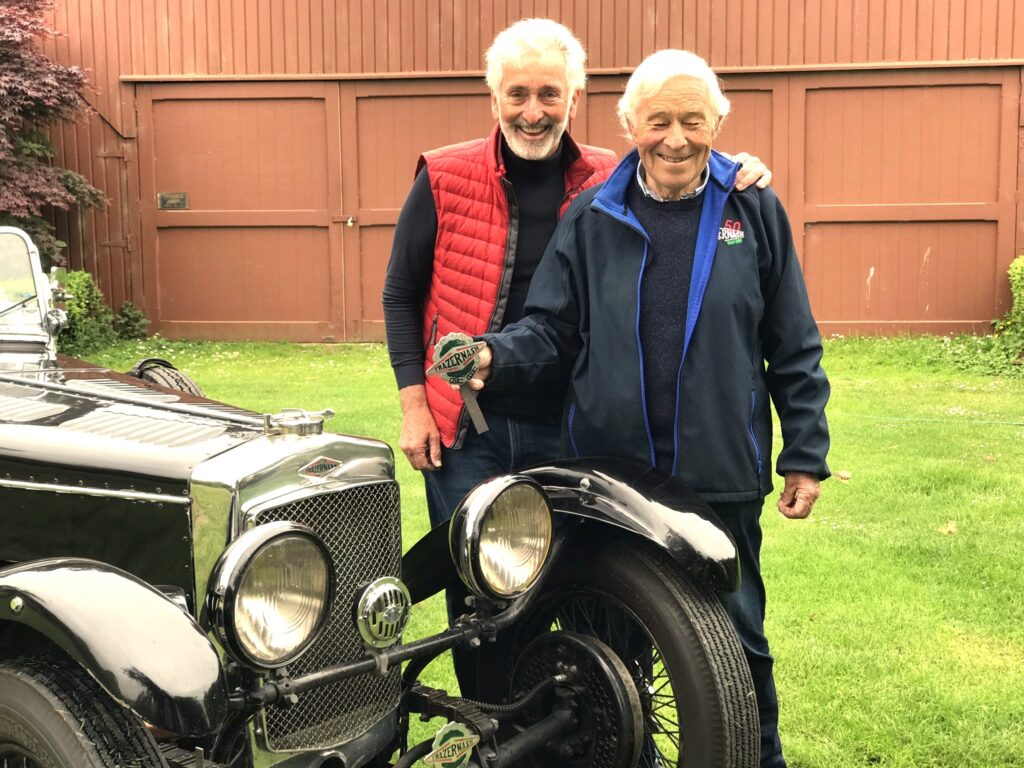
Berkeley Sports Cars (Part 1) – Tiny Gems In The Goldfields
Britain’s struggling economy in the 1950s encouraged the growing trend throughout Western Europe toward micro-cars that were cheap to build and run, and powered by motorcycle engines.
Quinton Taylor stumbled across a small collection of these pocket rockets in Cromwell Central Otago and was duly impressed.
”It’s not just colourful fruit that is everywhere in Central Otago at the moment. It’s surprising to learn of not one but three of these colourful little gems of English sports car design, fully restored in Cromwell in the hands of enthusiast, Laurie Stanton. A former farmer, Laurie moved south some years ago and as well as regular racing and marshalling duties at Highlands Motorsport Park, he has spent the last 18 years as a skipper on the SS Earnslaw at Queenstown, a job he loves.”
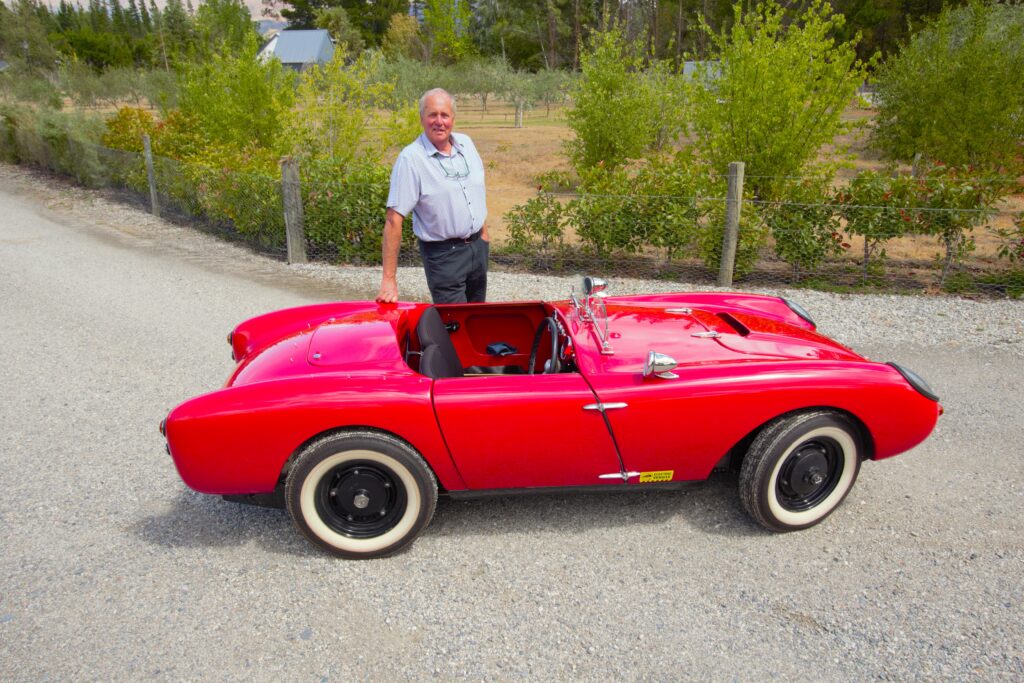
Kits and Pieces – Cheetah Kit Cars
In the finest Kiwi tradition, if you can’t get what you want in a car, build your own and do away with some of the issues you didn’t want in the first place. That’s not Cheeting
Patrick Harlow writes, “Identical twins Keith and Grant Loch own two near-identical cars. The cars are two of only nine unique cars built in New Zealand between 1988 and ’91. When I saw these cars with their V8 engines purring quietly on the driveway, I knew at a glance they were pretty special. At first glance they could be confused with the E-Type Jaguar but there are enough differences demanding a second and closer look. That reveals these cars are in no way identical to the E-Type Jaguar that inspired them. After what their builders went through to create them, any dimension shared with the Jaguar is coincidental, and under their fibreglass bodies is a lot of V8 muscle, as opposed to the straight six or V12 engines of the E-Type.”
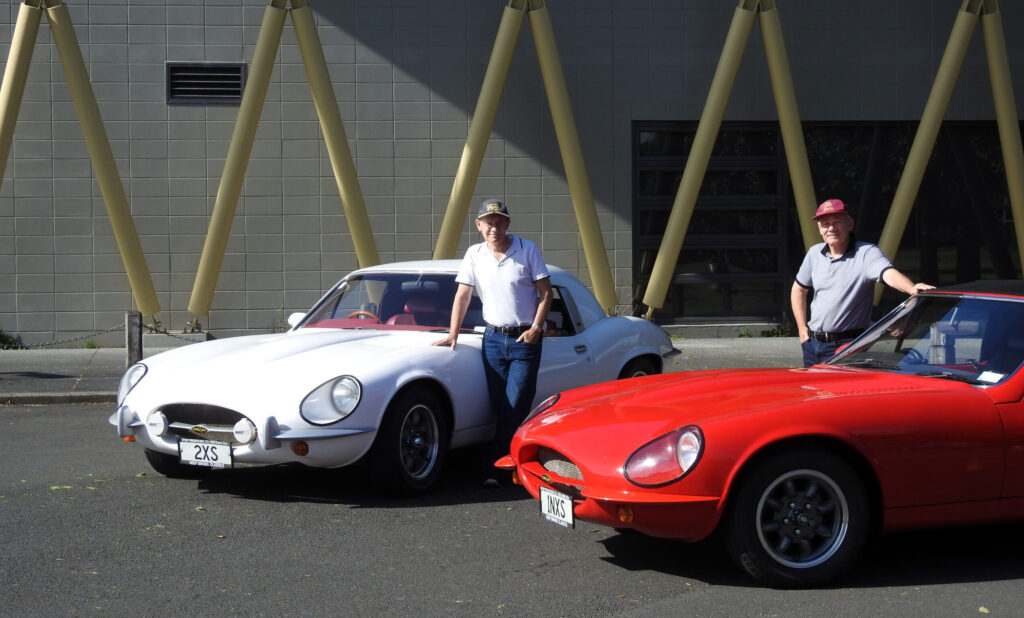
Motorman – Dennis Marwood, enduring racer
Donn Anderson honours a recently departed Kiwi motor racing hero.
It was the racing potential of a Humber 80 sedan that first captured the imagination of Dennis Marwood 60 years ago yet he proved spectacularly adept at the wheel of many different cars over two decades.
“Born in July 1933, he passed away at the age of 90 just before Christmas and, appropriately, his life was celebrated at Warwick Mortimer’s classic car collection on the Tawharanui Peninsula, near Matakana, north of Auckland, on January 13.
This motoring story began with an Austin Seven before Dennis progressed to an MG TD. He was bitten by the racing bug when attending a Northern Sports Car Club meeting at Ardmore in 1958. From his early days as a dairy farmer at Tahuna, near Morrinsville, Dennis would dedicate most of his life to motor racing.“
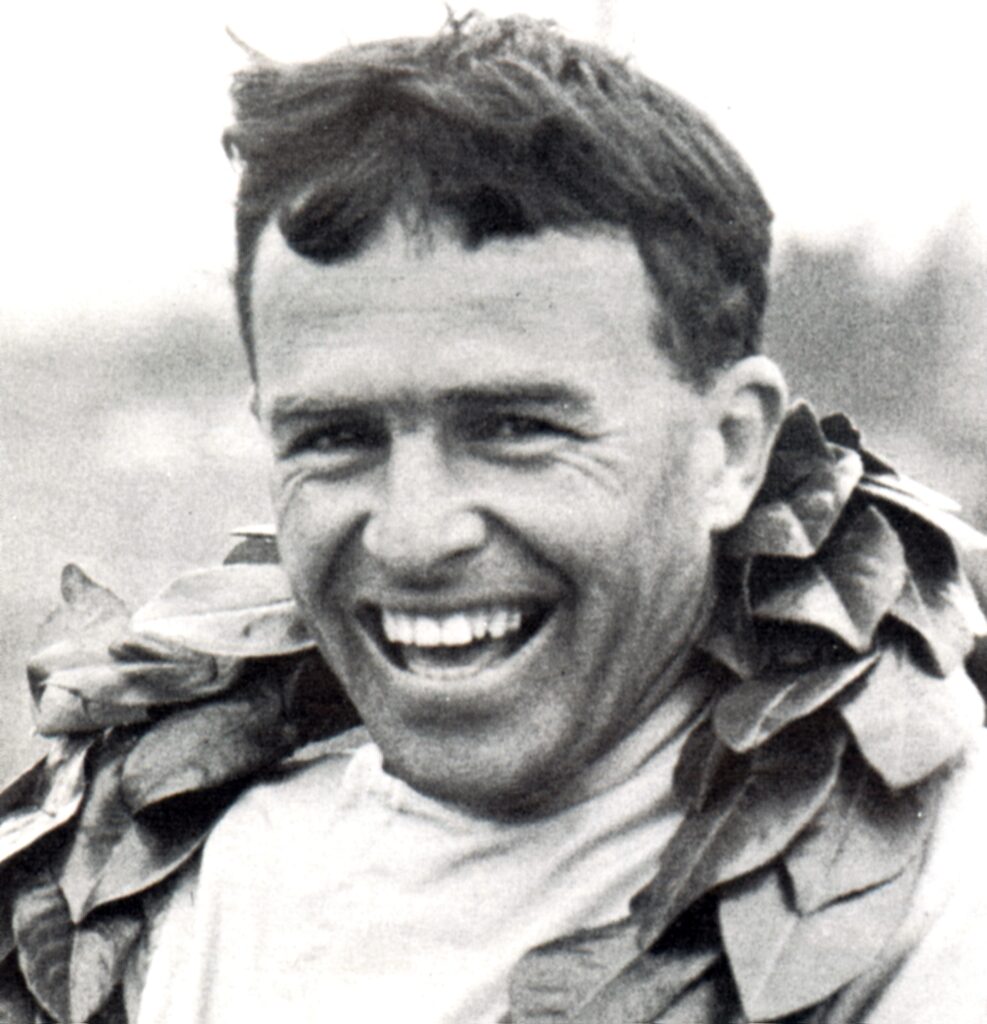
Lunch with… the tenth Duke of Richmond
Donn and Lynne Anderson had lunch with the tenth Duke of Richmond during Goodwood’s Festival of Speed in 2008 and they just had to return two months later for the Revival meeting.
“While Glorious Goodwood may not be as formal as Royal Ascot, the event does have its own rules of dress. Gentlemen must wear jackets and ties, cravats or polo necks in the Richmond Enclosure. Ladies are encouraged to wear hats. Jeans and shorts are not permitted, and baseball caps are too shocking to be seen. The main grandstand that had been constructed in 1903 was knocked down and rebuilt in 1980. “We wouldn’t be allowed to do that today,” quipped the duke.”
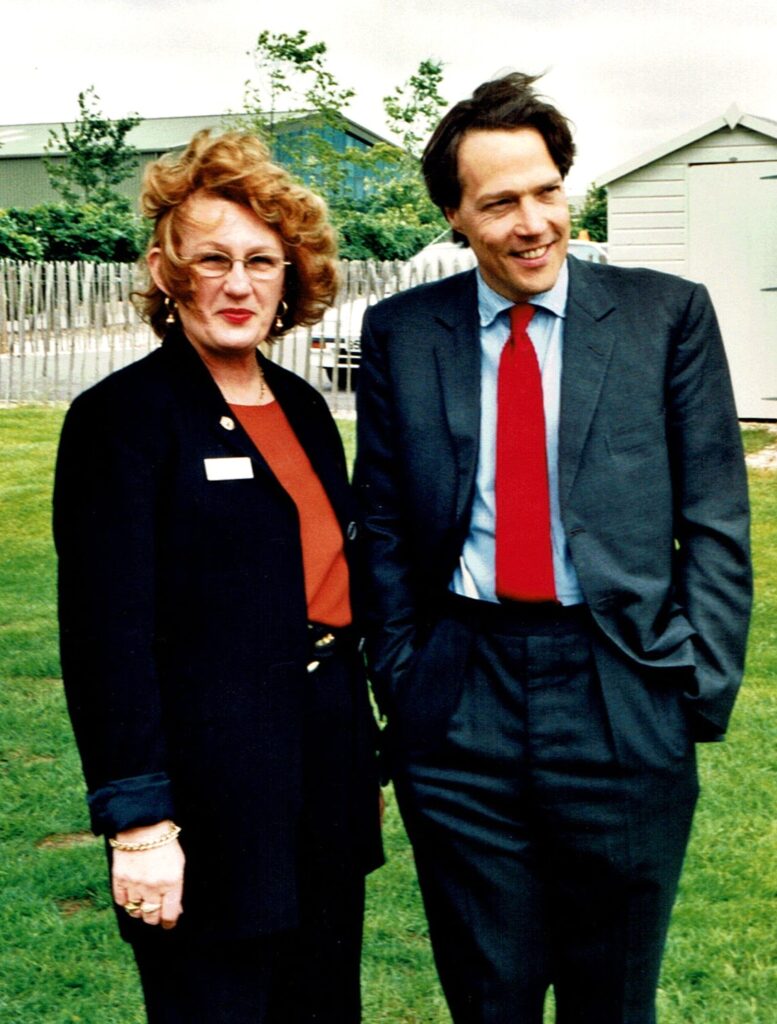
Show Stoppers
‘Show Stoppers’ is a new platform in New Zealand Classic Car in which we’ll take a brief look into some of the amazing cars and pickups turning up at shows around the country. During Covid lockdowns, with nowhere to go, many enthusiasts attacked those garage projects with vigour and some outstanding results keep appearing.
“Twin Cam passion: What to do when you already have a late model Ferrari in your garage and a very tidy Jaguar XK150 coupé? You get a team of professionals to build you something a little more practical for your retirement, such as a Twin-cam Ford Escort Replica.”
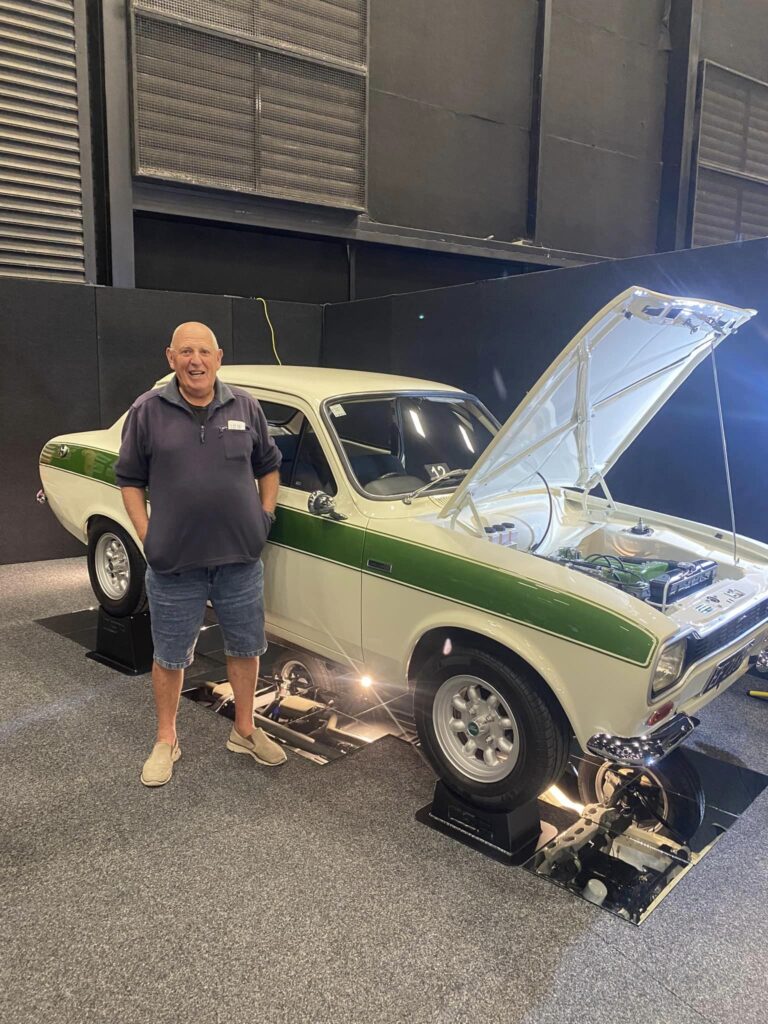
Book review and Price on… Insurances
The last eye witness:
The pioneering motor racing photography of Maurice Louis Branger By Doug Nye.
Published December 2023 by Porter Press International.
These were the days of large, unwieldy cameras and delicate glass plate negatives which must have been a nightmare to manage but, in the hands of such a skilled photographer, the results are simply stunning.
Price on: By Greg Price
Insurances, are they really a necessary evil? Do we really need certification for old vehicles whose only crime is a lapsed rego!
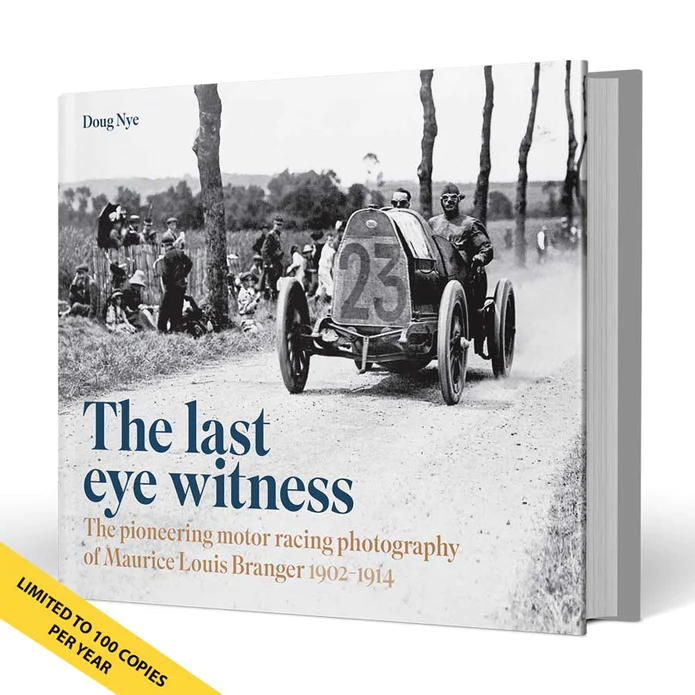
Motorsport flashback
The good old days? by Michael Clark
Saddled with a playboy image as ‘the heir to the Revlon fortune’, Peter Revson made his own luck in Can-Am and Formula 1 until, one day, it ran out.
“Four men won championships in papaya-coloured McLarens – Bruce McLaren and Denny Hulme won a pair each – alternating Can-Am titles from 1967-70 – while in 1969, Peter Gethin took out the inaugural F5000 series. In fact, Gethin eventually teamed up with Denny in both the F1 and Can-Am teams after Bruce was killed but he was replaced in the monster-engined sports car squad for ’71. In came Peter Revson – and, invariably, any mention of his name either led with or was followed by the words ‘heir to the Revlon fortune’.”
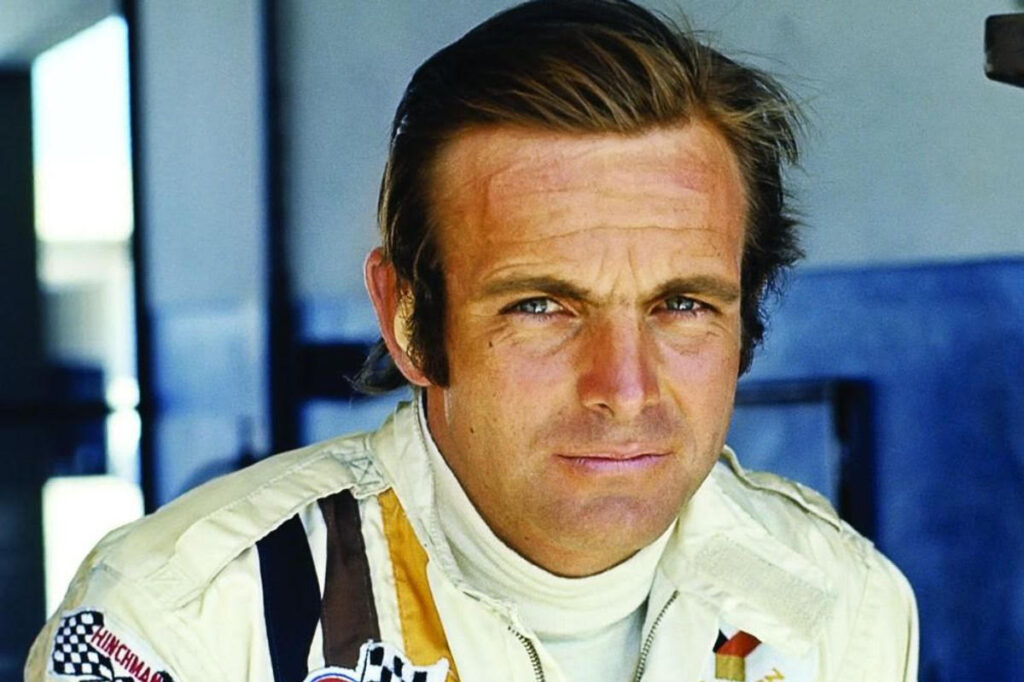
Marketplace report
Refinement, quality and on board toys By Ben Selby
If you are looking for a luxury classic you might like to look at Toyota’s refined Century
“When many think of luxury cars, images of the Spirit of Ecstacy, a winged B or three-pointed star adorning the imposing grilles of Rolls-Royces, Bentleys or Mercedes Benzes usually spring to mind first. But there’s a case to be made that Toyota’s Century deserves to be included in that pantheon of automotive luxury greats.
“The Toyota Century was the car used to celebrate Toyota’s founder Kiichiro Toyoda’s 100th birthday, hence the name.”
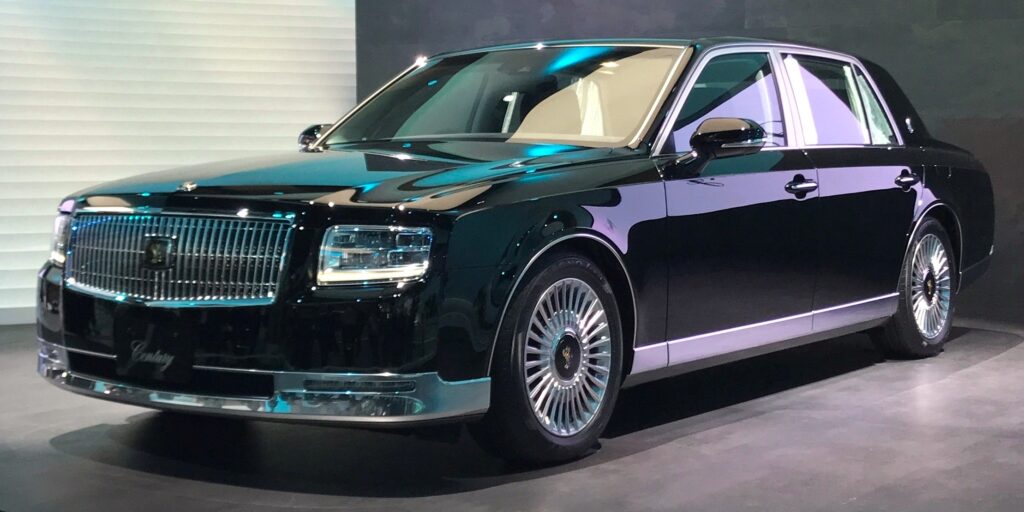
Behind the Garage Door – Mary’s Ford Mustang
Invercargill classic car enthusiast Adrian Robertson has been pleasantly surprised by his wife Mary’s determination to rebuild her 1967 Ford Mustang almost entirely by herself.
“What began as a trip to Gore to pick up a car ended up as a surprise birthday present in the form of the 1967 Mustang. I told her it was her car and not mine. She was pretty shocked and on the way back I noticed her regularly looking back at it as we trailered it home.”
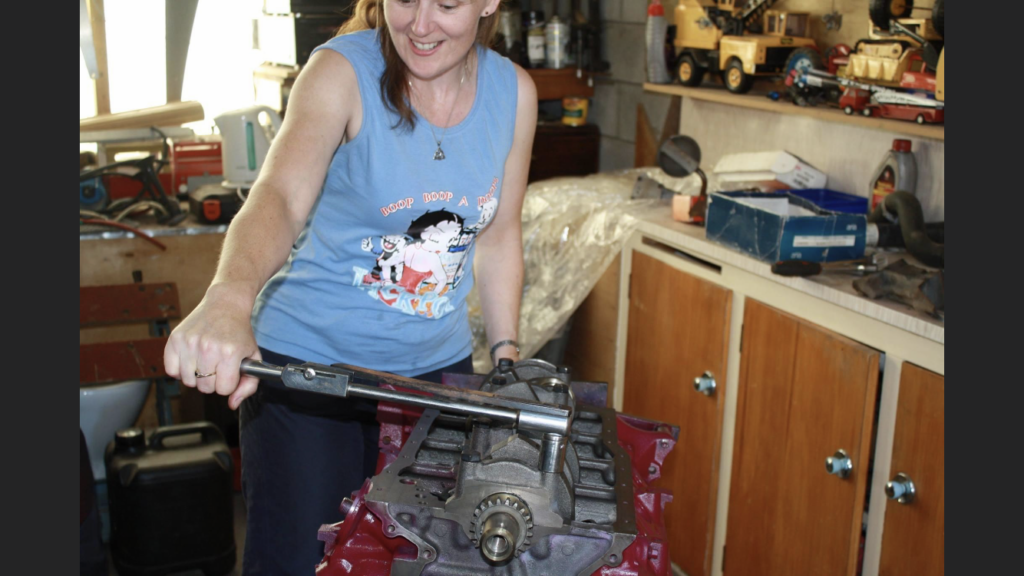
Classic news and events
It’s been a busy summer with car shows aplenty and classic motorsport in full swing. We have reports on the VCC Pomeroy race meeting, the Taupo Historic GP, the closing of the Mullin Museum in Southern California, the 60th reunion of the Ford GT40, Cars Inc Museum opens in Wellington, Cromwell classic and hot rod festival and an obituary for a friend of our magazine, John Corbett.
Head here to purchase a copy of this magazine.
